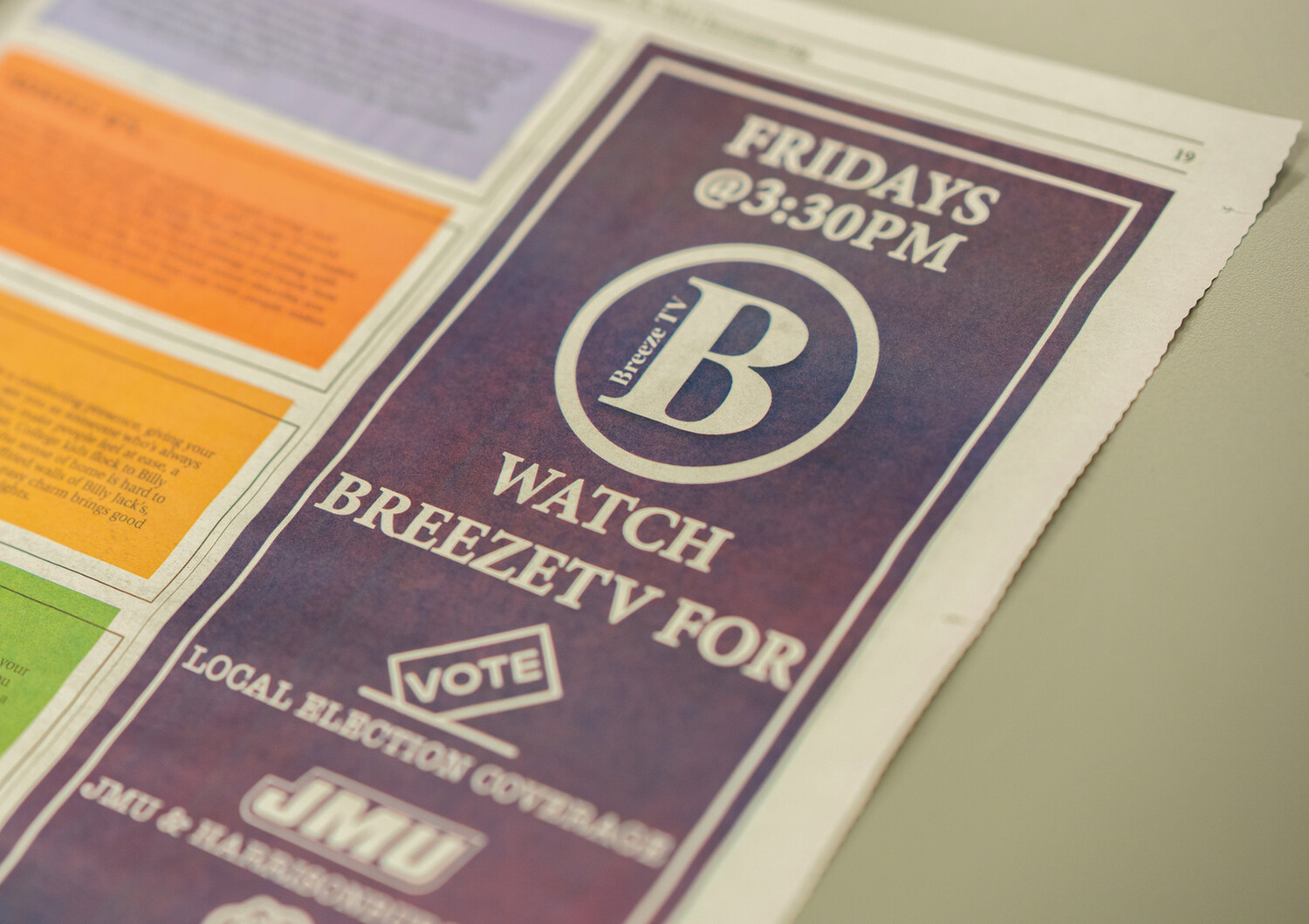One of the most fundamental rights in a democracy, voting allows citizens to influence the direction of their communities and their country. With so much at stake, understanding how to participate in an election is essential.
Election Day is Nov. 5. This guide will help first-time voters prepare to vote and make their voices count.
“[Voting is] not as hard or scary as you think it might be,” said Brielle Lacroix, president of the Student Government Association. “It’s a very straightforward process, and there are people there [at polling sites] to help you at every stage.”
Before casting your vote, make sure you meet the minimum eligibility criteria:
· You must be 18 years or older.
· You must be a U.S. citizen.
· You must meet your state’s residency requirements.
If you live in a JMU residence hall and are registered to vote in Harrisonburg, you can vote in Godwin Hall. Polling locations for off-campus students are based on their apartment complexes. You can find your voting location using TurboVote.
Additionally, voters should prepare in the following ways:
Register to vote
If you aren’t already registered to vote, you can register online, in person or by mail until your state’s registration deadline, which is typically 22 days before Election Day. After the registration deadline, same-day registration is still allowed, with limitations, in Virginia.
Same-day voters can register to vote in person and immediately vote using a provisional ballot. According to the Virginia Department of Elections, provisional ballots “are used by voters who do not appear on the list of registered voters at their polling location. Provisional ballots are not processed by a vote-counting machine at the time of voting but rather are subject to approval by the local electoral board prior to the ballot being counted.”
To same-day register, go to the office of your general registrar or satellite
location during the early-voting period, which ends Nov. 2. On Election Day, you must go to the polling place for the precinct in which you live.
Bring identification
Any form of identification, such as a valid passport, driver’s license, voter-registration confirmation document or employee ID card with a photograph, will be accepted at the polls.
Understand voting methods
There are several ways to vote: mail-in or absentee voting, in-person early voting, and in-person voting on Election Day. For in-person early voting, voters can cast their ballot from Sept. 20 to Nov. 2 at a central location, such as your town’s government office.
Research the candidates and issues
“Be informed! And be careful — there is so much misinformation out there,” said Rob Alexander, associate professor of Political Science. “Use your academic training to figure out what is a legitimate source of information and what is not. Use voter guides and candidate profiles from trusted sources like local newspapers (vs. opinion organizations).”
“I try to show up at candidate forums or meet-and-greets where I can listen to candidates speak for themselves and where I can ask them questions,” Alexander said. “When that is not feasible, I read multiple reviews of candidates from trusted sources, such as interest and advocacy groups who focus on issues and values that I care about or from journalism sources that I trust.”
Making an informed decision is critical. Consider the following before voting.
· Voter guides: Many nonprofit organizations publish voter guides summarizing candidates’ positions.
· Candidate websites: Explore the candidates’ websites to read about their platforms, goals and policies.
· Local news and debates: Watch candidate debates, read news articles and follow trusted sources to get insights into the candidates’ positions on important issues.
“I’d say the most important thing is to check out their social media pages or websites, or anything you can that the candidates themselves are putting out there,” Lacroix said. “That way, you can get the most accurate information to what they’re actually doing.”
Lacroix said she also uses conversations with friends to inform her decisions. “I think that talking about different political issues and the candidates who are available with peers who are like you, and also not like you, is really, really important.”
Stay involved
· Track election results: After casting your ballot, follow election results to see how the races and measures turn out.
· Attend local government meetings: Stay informed about local government decisions by attending city-council meetings, school-board sessions or town halls to learn about issues affecting your community.
· Volunteer: There are many ways to get involved in your community after the election. Volunteer for organizations you care about, help others register to vote or work at the polls in future elections.
· Advocate for causes: Use your voice beyond the voting booth by advocating for causes you believe in.
“I really encourage people to be engaged in all levels of politics,” Lacroix said. “Local government is the level of government that has the most ability to impact your daily life. So don’t vote for the president then not vote for your city council, and don’t vote for the president but not vote for your state representatives. The lower levels are the ones that actually impact you a lot more directly.”
Tips for first-time voters:
· Ask questions. If unsure about the process, feel free to ask poll workers for help.
· Download and bring a sample ballot. Many states provide a sample ballot to help you remember your choices.
· Stay calm. It’s OK to be nervous. Just take your time and follow the instructions.
“You really need to show up for your beliefs and your values,” Lacroix said. “The only big way to make change in our government is to vote. So I highly encourage everyone to do it.”
